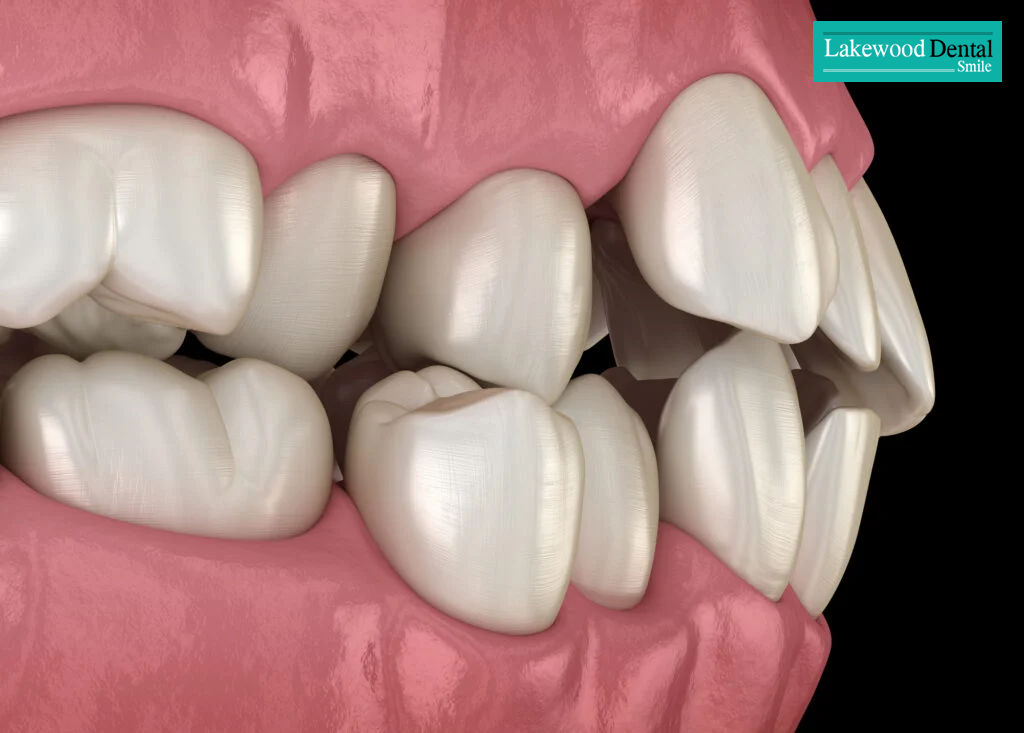What Are Dental Implants?
Dental implants are advanced tooth replacement solutions that serve as strong and permanent alternatives to missing teeth. A dental implant is a small titanium post surgically placed into the jawbone. Over time, it naturally fuses with the bone through a process called osseointegration, creating a stable foundation for crowns, bridges, or dentures.

Titanium is often used because it is biocompatible, meaning the body accepts it without complications. Once healing is complete, a custom crown is attached, making the implant look, feel, and function just like a natural tooth.
Unlike removable dentures, dental implants provide a lasting, worry-free solution that improves both oral health and confidence.
When Would Someone Need Dental Implants?
People may need dental implants if they are missing one or more teeth. Tooth loss can occur due to accidents, decay, gum disease, or aging. Missing teeth not only affect appearance but also chewing function, speech, and jawbone health.
Factors that determine eligibility for dental implants include:
- ✅ Location of the missing tooth or teeth
- ✅ The strength, density, and quantity of jawbone available
- ✅ Patient’s overall health and lifestyle choices
- ✅ Budget considerations and long-term dental goals
For example, someone who lost a front tooth in a sports accident may prefer implants over bridges for a more natural look. Similarly, an older patient struggling with loose dentures may find implants life-changing because they restore stability and chewing efficiency.
Benefits of Dental Implants
Dental implants offer several advantages compared to bridges and removable dentures:
- 🦷 Natural Appearance – Look and feel like real teeth
- 💪 Durability – Long-lasting and resistant to daily wear
- 🚫 Tooth Preservation – Do not affect neighboring teeth
- 😀 Boosted Confidence – Restores natural smiles and self-esteem
- 🍽️ Improved Function – Supports chewing and digestion
- 🕒 Longevity – Can last a lifetime with proper oral care
For instance, dentures may slip while eating, but implants remain firmly anchored, allowing patients to enjoy foods they once avoided. This functional and aesthetic improvement makes them a popular choice worldwide.
Who Performs Dental Implant Surgery?
While general dentists can provide implants, specialists like oral surgeons and periodontists often deliver the highest success rates. These experts are trained to handle complex cases, including bone grafts or sinus lifts when bone quality is insufficient.
Once the implant has integrated into the jaw, a restorative dentist usually places the crown or bridge to complete the treatment. This collaborative approach ensures precision and long-term success.
Will Dental Implant Surgery Hurt?
Many patients worry about pain. Fortunately, dental implant surgery is done under local anesthesia, making the procedure virtually painless. Afterward, patients may experience mild soreness similar to a tooth extraction.
Tips for a comfortable recovery include:
- Applying cold compresses to reduce swelling
- Taking prescribed or over-the-counter pain relievers
- Eating soft foods during the healing period
- Maintaining proper oral hygiene to prevent infection
Most patients return to normal activities within a few days.
Risks and Complications of Dental Implants
Although the success rate of dental implants is above 95%, complications can occur if proper care is not taken. Potential risks include:
- Infection at the implant site
- Implant loosening or fracture
- Overloading due to improper placement
- Bone loss or insufficient bone support
Working with an experienced dentist and following aftercare instructions significantly reduces these risks.
Who Is a Good Candidate for Dental Implants?
You may be a good candidate if you:
- Have one or more missing teeth
- Maintain healthy gums and sufficient jawbone
- Are in good general health
- Avoid heavy smoking or uncontrolled conditions such as diabetes
For example, a non-smoker with missing molars and strong jawbone support is usually an ideal candidate. On the other hand, patients with bone loss may require grafting before implants.
Step-by-Step Dental Implant Procedure
1. Consultation & Planning – X-rays, scans, and customized treatment plans
2. Implant Placement – Titanium post is surgically inserted
3. Healing & Osseointegration – Jawbone fuses with the implant over months
4. Abutment & Crown Placement – Final crown or bridge restores full function and aesthetics
This step-by-step process ensures long-lasting, natural-looking results.
Schedule Your Dental Implant Consultation
At Lakewood Dental Smile in Dearborn, Michigan, we specialize in advanced dental implants and cosmetic dentistry. Our expert team also provides oral surgery, braces, root canal therapy, and full-mouth rehabilitation.
👉 Book your consultation today and take the first step toward a confident, healthy smile.


